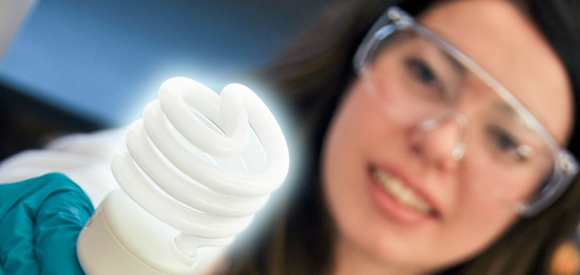
Assist. Prof. Cigdem Eskicioglu is finding ways to extract energy from waste and recycle it.
From UBC Reports, March 2010
A professor of engineering at UBC Okanagan is working with municipalities, farms, factories and mills to identify effective ways to turn their organic waste into renewable energy – methane – and organic fertilizer.
Cigdem Eskicioglu’s research is examining ways to improve energy production from agricultural and industrial waste, while also diverting waste from landfills and reducing pathogens, odour and greenhouse gas emissions.
“In Canada, our waste is not utilized as a resource,” says Eskicioglu. “If we can make use of the waste in innovative ways to extract energy and recycle it within our communities, this will take Canada a step closer to achieving its Kyoto targets for greenhouse
gas reduction.”
Anaerobic digestion – a treatment that breaks down organic waste in the absence of oxygen – produces a biogas comprised primarily of methane and carbon dioxide that can be used to generate electricity and heat. Eskicioglu’s research group develops advanced anaerobic digestion processes for turning organic residues – manure, food processing waste, bioethanol plant stillage, sewage sludge, even the organic portions of garbage – into energy sources and nutrient-rich fertilizer.